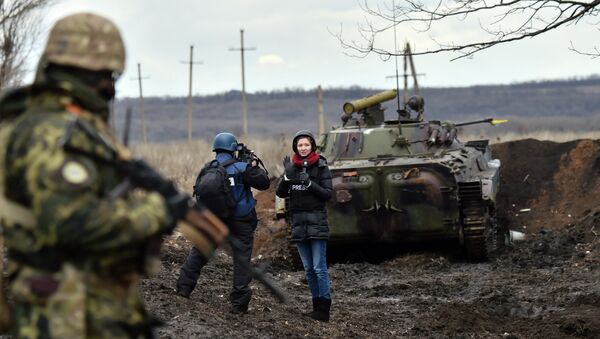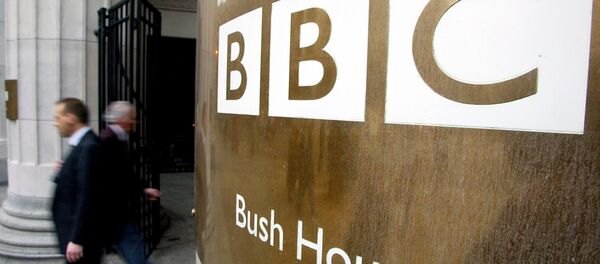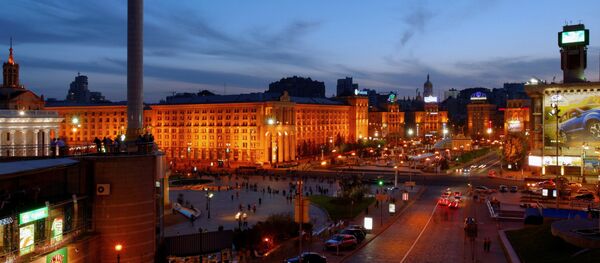Well, the ban turned out to be a quick one for British, German and Spanish journalists.
"The names of British, German and Spanish journalists were removed from the sanctions list," Tseholko said on his Twitter account.
On Wednesday, Poroshenko signed a decree that banned over 400 individuals, including high-ranking officials, prominent public figures, lawyers and more than 40 foreign journalists, from Ukraine for being a "real and/or potential threat to the national interests, national security, sovereignty, and territorial unity of Ukraine."
"This is a shameful attack on media freedom… These sanctions are completely inappropriate and inexplicable measures to take against BBC journalists who are reporting the situation in Ukraine impartially and objectively and we call on the Ukrainian Government to remove their names from this list immediately," BBC foreign editor Andrew Roy said in a statement, regarding three BBC journalists who were included in the blacklist.
The European Commission was also concerned by Poroshenko's decision and stated that the move didn't fit "European values."
"I have just heard about it, I have to look into it, but at the first glance I'm surprised and I'm concerned, and I will certainly discuss it, when we have analyzed this issue, with colleagues in Ukraine, because I wouldn't say this is in the European spirit," Commissioner for European Neighborhood Policy Johannes Hahn commented on the ban.
Other Foreign Journalists are Still Banned
Unlike British, German and Spanish journalists, their colleagues from other countries are still banned from Ukraine. One of them, Slobodan Samardzija, a contributor with the Serbian newspaper Politika, said his sanctions won't be lifted under the government of Poroshenko.
"I was among the group of international observers of the elections in Donetsk. We did our job on the elections. After that I found out that I was on the blacklist. Only because of that I was added to the blacklist. But I never received any official information," the Serbian journalist told Sputnik.
Poroshenko's decision to ban journalists is indeed a true attack against media freedom. However, why is it that only the Western journalists are allowed back in, while others are still banned? It seems that there is a division between journalists from the Western Europe and the rest of the world, apartheid for journalists in Ukraine, so to speak.
Will the mainstream Western media continue to bash Poroshenko for his attack on Russian journalists or perhaps it isn't an "attack on media freedom" when Russian journalists, aka "Kremlin trolls who spread Russian propaganda," are involved?
And why is Poroshenko so paranoid anyways, banning people left and right? Is he scared of someone finding out inconvenient truth?




